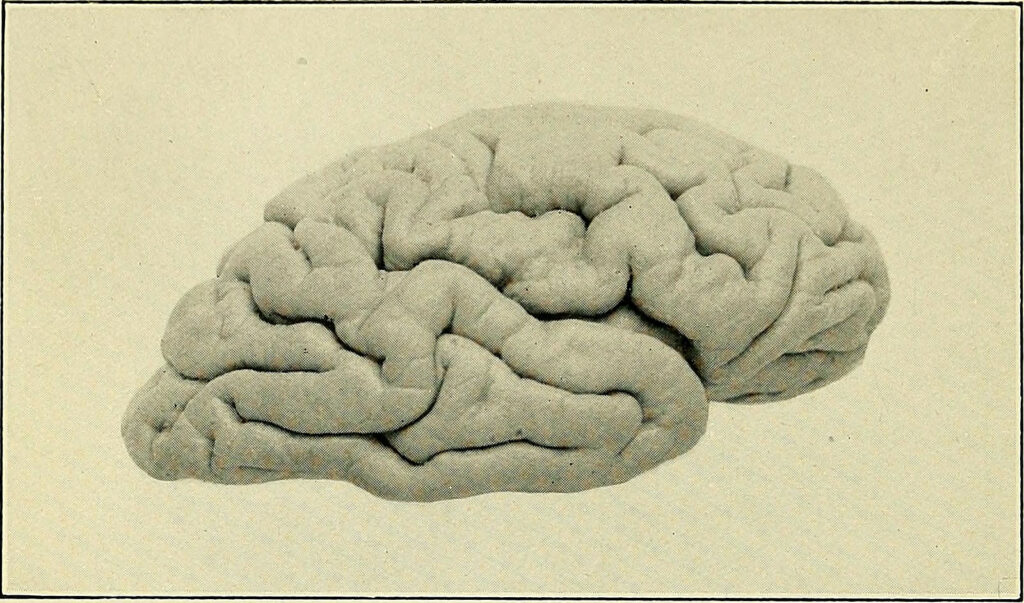A new study in the journal PNAS explores whether brain scans are ineffective at identifying criminal intent in carefully designed situations.
Legal ethics distinguishes between those who intended to commit a crime and those who were simply reckless, and legal systems often impose harsher punishments on those who intended to break the law. However, it is difficult to assess intent, particularly after the crime has been committed. In the service of greater clarity for the legal system, neuroscientists hope to find evidence that psychological states such as criminal intent are visible on brain scans.
For this study, researchers conducted fMRI scans of 40 participants while asking them to decide whether or not to carry “valuable content” through a “checkpoint.” The researchers gave specific information about the probability that a given suitcase contained the “valuable content” and the probability that the participant would be searched at the “checkpoint.” The participant then chose to (theoretically) carry, or not carry, the suitcase.

Even in the carefully orchestrated research scenario, the detection rate was poor. When any small changes were made to the scenario, the detection rate was so poor that you would have a better chance of guessing correctly if you flipped a coin.
In the best-case scenario, the “offender” was told the exact probability of being caught before being told the probability that they had contraband in their suitcase. Priming the participant with the idea of being caught appeared to help the detection rate: the algorithm was able to distinguish about 70% of the participants as having or not having “criminal intent.”
However, in a scenario in which the offender still knew the probability of being caught, but was told that information after being told the probability of carrying contraband, the detection rate dropped to about 30%, meaning that the algorithm was worse than random chance. In effect, this slight change to the methodology completely invalidated the results of the test.
There are major limitations to the findings. The study presupposes that criminals know the exact probability of being caught, which is, of course, highly unlikely in real life. More importantly, however, the participants were not actual criminals and underwent voluntary fMRI scans while thinking about committing a future crime, with the knowledge that they might never commit this crime in real life. This means that the results, even if they had been more positive, may not generalize to people who actually commit crimes, or who actually even intend to commit crimes.
Even if the researchers had been better able to determine criminal intent with their brain scans, it would require that they somehow arrange to brain-scan people who have not yet even committed a crime in order to determine if they intended to or not. According to the researchers:
“It would be absurd to suggest, in light of our results, that the task of assessing the mental state of a defendant could or should, even in principle, be reduced to the classification of brain data. For one thing, our capacity to classify participants’ mental states depended on the collection of brain data at the time of a potentially criminal act. Obviously, in most cases, when someone is committing a crime they are not doing so while inside a scanner.”
They add, “Even if several future studies confirm what we have observed here, that knowledge and recklessness are associated with different brain states, if human jurors cannot distinguish them behaviorally, then one may still ask whether they should be considered relevant to assessments of criminal liability.”
****
Vilares, I., Wesley, M. J., Ahn, W.-Y., Bonnie, R. J., Hoffman, M., Jones, O. D. . . . Montague, P. R. (2017). Predicting the knowledge-recklessness distinction in the human brain. PNAS, 114(12), 3222-3227. doi: 10.1073/pnas.1619385114 (Abstract)















Does this really surprise anyone?
Report comment
Contraband and criminal intent. Even if these scans miraculously could read minds what if you did not believe what you were doing was “criminal” ?
I believe in order to commit a crime you need a victim therefor possession of contraband is not a crime so if they used their mind reading machine on me and I was in possession of a big bag of dope it would not find ‘criminal’ intent cause I know what criminal really is, its harming other people.
I also find some humor in the fact that those who engage in victimless so called ‘crime’ don’t create any real victims until they are put behind bars, at which point they cause the State to steal $50,000 a year from the tax paying public.
Report comment
Peter, – you’d do better to study the FINANCIAL implications of psychiatric taxonomy in diagnosis and treatment.
Psychiatry is a pseudoscience drug racket and means of social control. ALL of the alleged “diagnoses” in the DSM were invented, not discovered, and they ALL exist solely to advance the power and prestige of the medical-industrial complex….
(I do find it highly ironic – the base design of the “study” you’re reporting on involves “smuggling” “drugs”. If they’re illegal & in a suitcase, it’s “drug smuggling”, but if they’re legal, then it’s “pharmaceutical import/export”….
Report comment